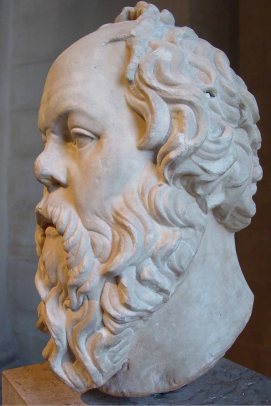… or, for that matter, monkeys? “Say you did create a human-chimp chimera that was like a dog, but much, much smarter. It loved you unconditionally and did what you wanted and was a sort of slave, but it enjoyed it. Does that being have a complaint against you? If it hadn’t been created in that way, it wouldn’t have existed. In that sense, it’s not harmed.”
Month: February 2014
Figuring out who the real you is
Experimental philosophy and self-identity. Joshua Knobe shows that blurring the line between psychology and philosophy can help us figure out who or what the true you is.
Is the universe a simulation?
Is the universe a simulation? Mathematical truths seem to be timeless and unchanging realities we discover rather than something we invent. But as fallible as we are, how could we ever discover these truths? One “possibility is that we live in a computer simulation based on the laws of mathematics — not in what we commonly take to be the real world. According to this theory, some highly advanced computer programmer of the future has devised this simulation, and we are unknowingly part of it. Thus when we discover a mathematical truth, we are simply discovering aspects of the code that the programmer used.”
Where does consciousness come from?
Panpsychism. “It’s a question that’s perplexed philosophers for centuries and scientists for decades: Where does consciousness come from? We know it exists, at least in ourselves. But how it arises from chemistry and electricity in our brains is an unsolved mystery. Neuroscientist Christof Koch, chief scientific officer at the Allen Institute for Brain Science, thinks he might know the answer. According to Koch, consciousness arises within any sufficiently complex, information-processing system. All animals, from humans on down to earthworms, are conscious; even the internet could be. That’s just the way the universe works.”
A psychopath’s brain
Life as a nonviolent psychopath. “Neuroscientist James Fallon discovered through his work that he has the brain of a psychopath, and subsequently learned a lot about the role of genes in personality and how his brain affects his life.” What make you the person you are? Your brain, your environment, or you?
It’s hard to change your mind
“The New Atheist Sam Harris recently offered to pay $10,000 to anyone who can disprove his arguments about morality. Jonathan Haidt analyzes the nature of reasoning, and the ease with which reason becomes a servant of the passions. He bets $10,000 that Harris will not change his mind.” Why? Because “people deploy their reasoning powers to find support for what they want to believe.”
What’s unique to humans?
Are we really as unique as we like to think? Stephen Cave considers the evidence. The biological evidence suggests it’s cooperation, “the distinctively human practice of putting heads together.” Does this undermine Hobbes’ view of human nature … or in a way confirm it?
Consciousness … what is it good for?
What’s the point of consciousness? David Barash, an evolutionary biologist and “aspiring Buddhist,” suggests that the evolutionary advantage of consciousness “includes our efforts to interpret what other individuals are doing, feeling and thinking, as well as how those others are likely to perceive us in return.” How far is this from Nietzsche’s hypothesis that consciousness is not a self-contained sphere of individuality but is instead a net of communication among individuals?
